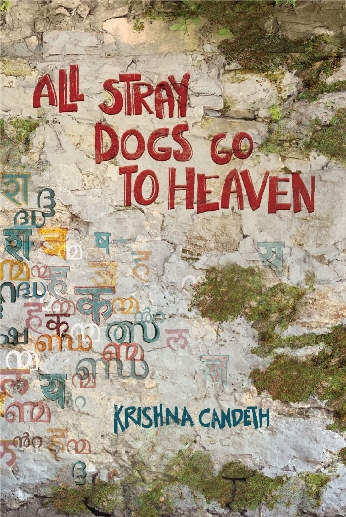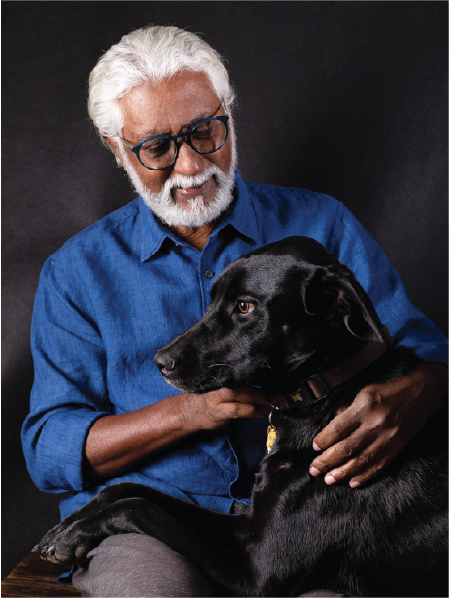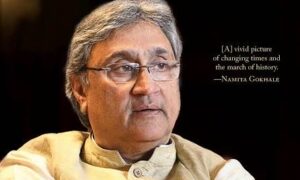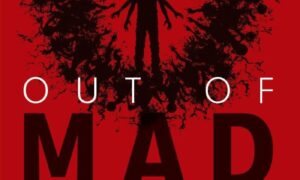
It was called ‘The Small Forest Book’. They found it among Chinma’s belongings—several loose sheets in a blue binder held together with a large paper clip. A spidery hand crammed the pages top and bottom and beyond the margins. In the note pasted on the binder, the last four words were in capitals and underlined: For Nitya WHEN I AM DONE.
Although called ‘The Small Forest Book’, Nitya recognized at once the sly reference to a text they had read together as students and often talked about: the Brihadaranyaka Upanishad, or The Great Book of the Wilderness.
At first, he thought the entries were gathered during that sad and unusual journey they had embarked on together but they turned out, on closer inspection, to be a record of Chinma’s musings during the many weeks he had spent wandering in the forests of the Western Ghats. Was this, then, the journal he had kept when, after the torment of what had befallen him and Aniyathi in the cave temples, he had run away and lost himself in those dense and rolling rainforests? If you believed that to be true, you would have to marvel at his reserve in never once referring to the calamitous events that must have seared themselves in his memory. The journal, however, is not dated, and though there are shreds of sadness that cling to the entries, that sort of speculation, as Chinma himself would say often, has more to do with your age and the time of day than what was actually there on the page.
Also in the binder was a slimmer, unruled, sparsely-filled notebook titled ‘Where the Words End’, a strangely affecting account, thinks Nitya, of Chinma’s days and nights from the time he entered the forest with Khuma and followed him deep along the trails to where the armed insurgents had established what they called a ‘liberated zone’. The journal ends abruptly and further entries, if there were going to be any, were overtaken, one assumes, by his own death.
Compared to the packed text of ‘The Small Forest Book’, full of crossed-out lines and heated corrections, the script here is smaller and less cluttered; there was, perhaps, no time for revisions and he had written the words down as they’d come to him, confident they were the best words he could summon at the moment.
Stuck fast between the last two pages of the journal is a small pencil drawing of a baby elephant and a little girl, both with their legs comically raised in a jaunty dance. Nitya has no idea as to its origin. Was it one of the little drawings of animals and flowers that Purusha would bring Yasho on that fateful journey, saying simply, ‘For the baby’?

The last item in this clutch of diverse bequests is a photograph in a grimy white envelope. The print in italics, though a little dingy, is still visible at the top-right corner of the envelope: LUCKY PHOTO MART. It was taken probably in their first year at the university, and it exists solely because of a zany impulse on the part of their great friend Umi; the picture itself has whitened in the middle, erasing a little the features of the young men who appear in it. There they are, the three of them—Umi and Nitya with their arms around Chinma’s shoulders, all earnest and seemingly solemn until you saw the raised middle fingers sticking out of their hands. Squeezed between his two friends, Chinma looks like the victim of an ambush as he smiles gamely and gives the viewer two lazy middle fingers, his hands hanging limply down his sides.
The various items were all enclosed in an oversized envelope and addressed to Nitya’s aunt Elty in Bangalore. She was ill at the time but she took it to the local post office and made a vehement appeal to the Postmaster—whom she knew—that the dead man’s bequest be delivered to the right address. By the time, many months later, when it reached Govi’s house in Muducheri, Elty was dead and Nitya was unsure as to how or where to direct his thanks. Under normal circumstances, a stamped ‘Return to Sender’ from the postal service would’ve quickly settled the matter of a faulty address but in this case he liked to think that a small army of aging visionaries from that somnolent national service had rallied to Elty’s call and taken it upon themselves to launch a prolonged initiative that had finally delivered the envelope safely in the hands of the intended recipient.
(Extracted with due permission from author , publisher)
[the_ad id=”55722″]


















